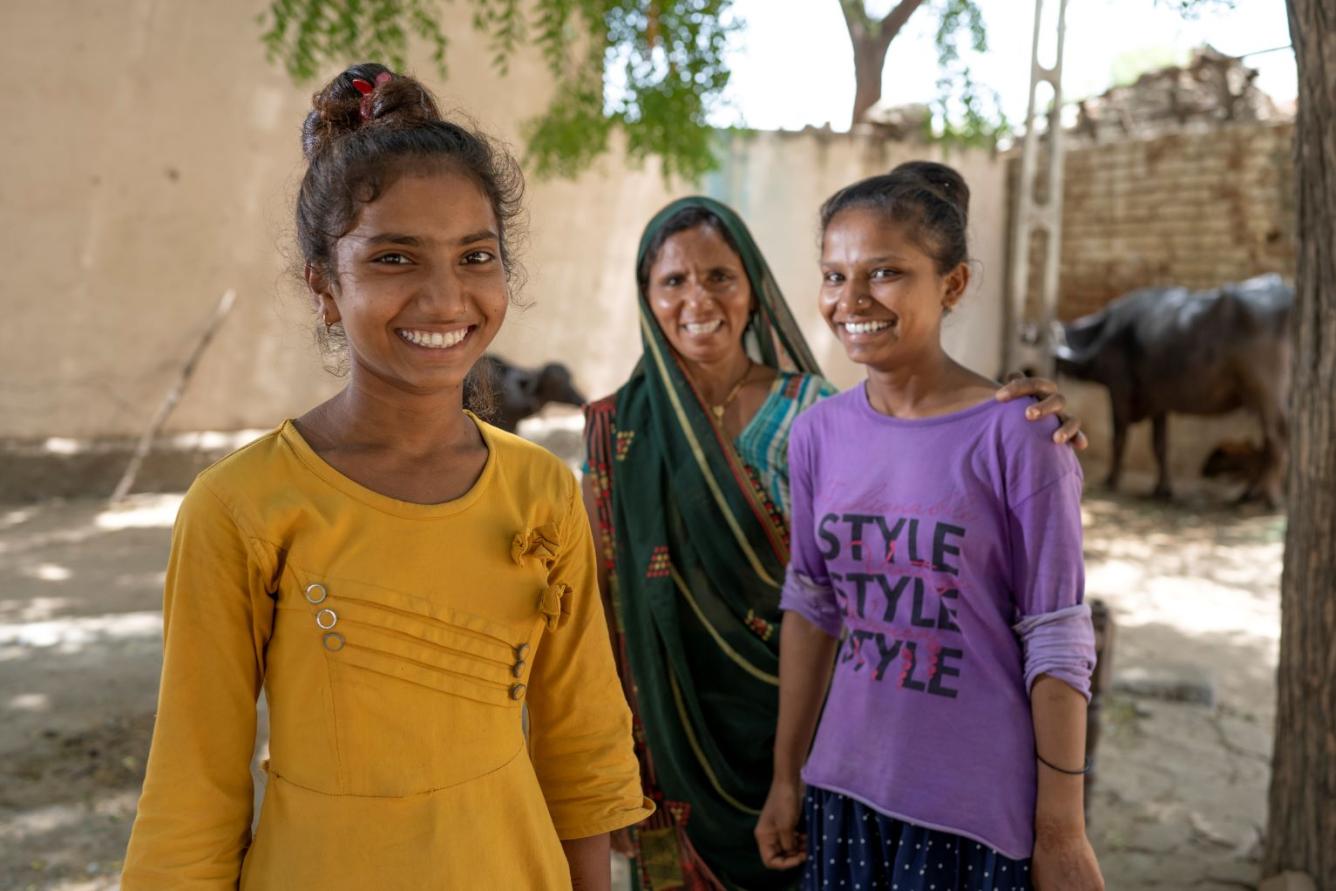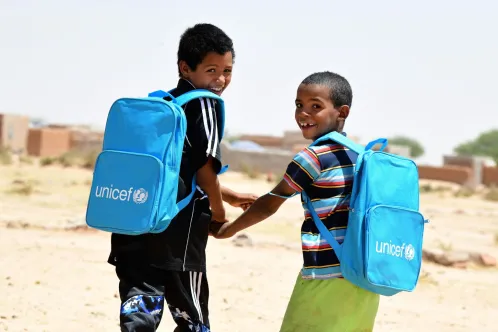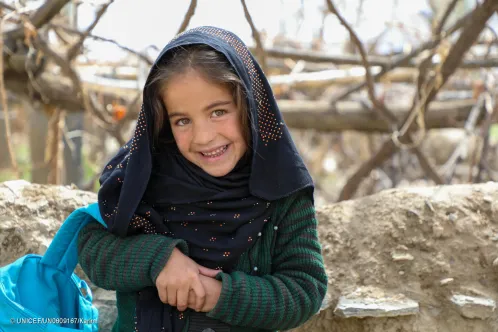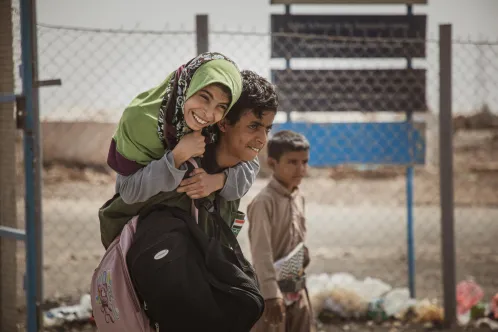UNICEF’s work to end child marriage
Child marriage, also known as early marriage, robs girls of their childhood and threatens their well-being. Despite a steady decline over the past decade, child marriage remains widespread.
Today, many crises, including conflict and climate change threaten to reverse progress toward eliminating this human rights violation. Currently, one in five girls worldwide is married before they turn 18.
UNICEF is working with our partners to identify and address the underlying barriers that enable child marriage. We also work to provide access to comprehensive life skills and education training to empower young girls who are married or at risk of marriage.
Child marriage threatens the lives and futures of girls around the world
Child marriage refers to any formal marriage or informal union between a child under the age of 18 and an adult or another child. It is often the result of deep-seated gender inequality, making girls more likely affected by the practice. Globally, child marriage among boys is just one-sixth that among girls.
While the roots of the practice vary across countries and cultures, poverty, lack of educational opportunities and limited access to healthcare keep it going. Some families marry off their daughters to reduce their economic burden or earn income. Others may do so because they believe it will secure their daughters’ futures or protect them.
Norms and stereotypes around gender roles, as well as the socio-economic risk of pregnancy outside of marriage, also uphold the practice.
Girls who marry before 18 are more likely to:
- Experience domestic violence and be less likely to remain in school;
- Have worse economic and health outcomes than their unmarried peers, which are eventually passed down to their children;
- Have increased complications during pregnancy and childbirth, as child brides often become pregnant during adolescence;
- Experience isolation from their family, friends and communities.
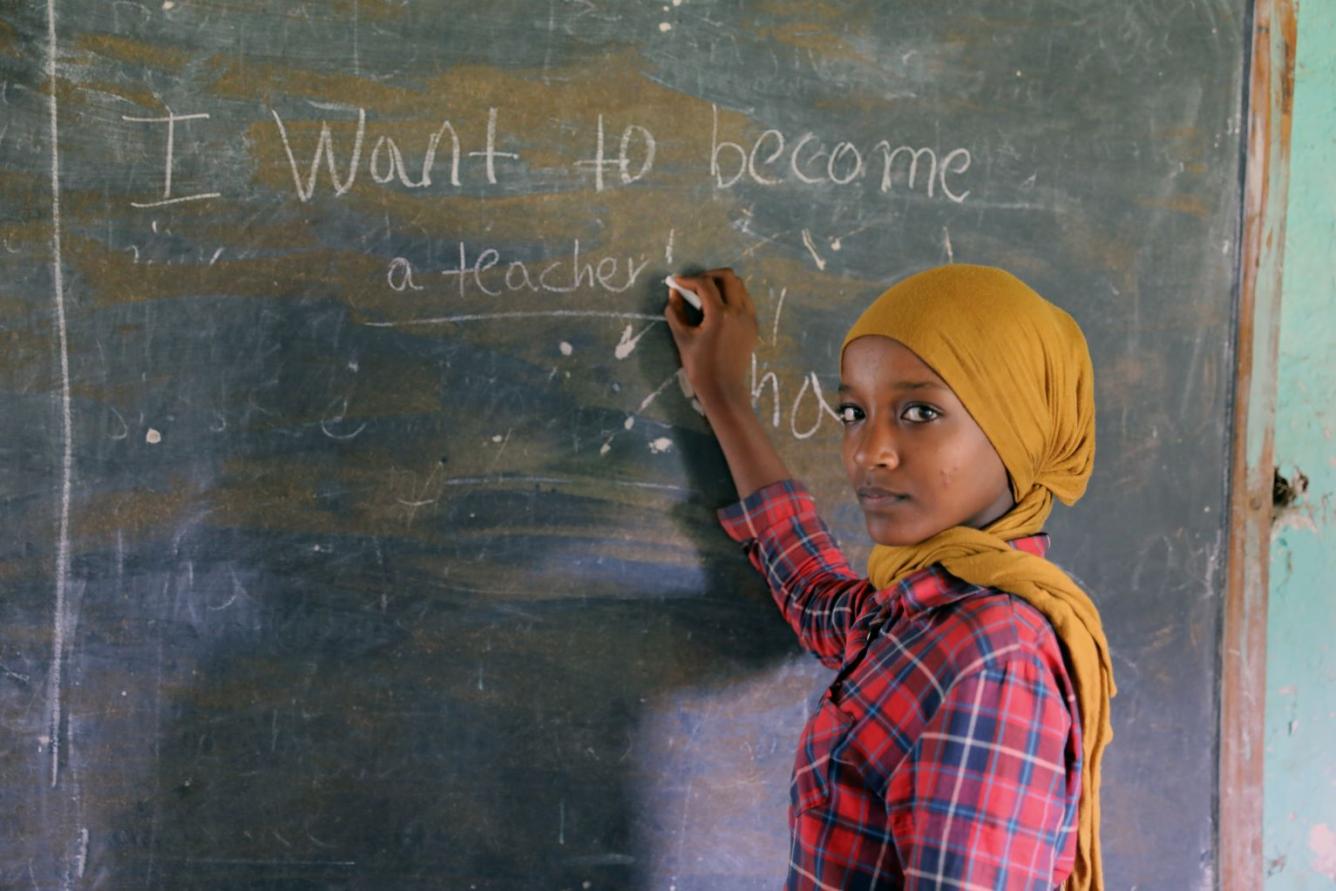
We are working to reach girls at greatest risk of child marriage
In 2016, UNICEF and the UNFPA launched the Global Programme to End Child Marriage. The Programme works to tackle child marriage in 12 countries where the practice is most prevalent: Bangladesh, Burkina Faso, Ethiopia, Ghana, India, Mozambique, Nepal, Niger, Sierra Leone, Uganda, Yemen and Zambia.
The Global Programme to End Child Marriage aims to:
- Promote the rights of adolescent girls to avert marriage and pregnancy;
- Enable girls to achieve their aspirations through education and alternative pathways;
- Strengthen services that empower girls to direct their own futures, including sexual and reproductive health and social protection programs;
- Address the underlying conditions that sustain child marriage by advocating for laws and policies that protect girls' rights while highlighting the importance of using data to inform policies.
The program has reached more than 21 million adolescent girls with life-skills training, comprehensive sexuality education and school attendance support since 2016. Over 353 million people, including key community influencers as well as men and boys specifically, have also engaged in dialogue and communication campaigns to support adolescent girls, or other efforts to end child marriage.
